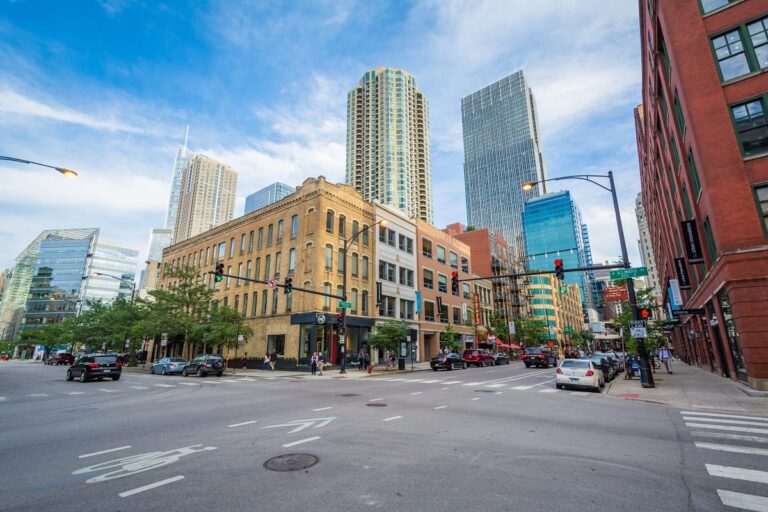The city of Chicago has said it aims to be the most inclusive and accessible city in the USA, however a lawsuit shows that only 11 of the city’s 2,762 signalised intersections are accessible to pedestrians who are blind or have low vision.
A class-action lawsuit has been filed against the city of Chicago and the Chicago Department of Transportation (CDOT), citing that there is a “systematic lack of accessible pedestrian signals (APS) at intersections all over the city”.
The lawsuit, filed by Disability Rights Advocates (DRA) and the Proskauer law firm on behalf of the American Council of the Blind of Metropolitan Chicago (ACBMC) and three individual claimants with vision-related disabilities, claims that Chicago “disregards blind pedestrians’ safety needs in its pedestrian planning, thereby violating federal and state civil rights laws”.
APS gives out information about the walk/don’t walk intervals at signalised intersections in non-visual formats (audible tones and vibrotactile surfaces) to pedestrians with low vision or who are blind.
The lawsuit says that the city of Chicago and CDOT are violating federal civil rights laws designed to get rid of disability-based discrimination, including Section 504 and the Americans with Disabilities Act.
“It’s not just a matter of safety. Blind people have the right to navigate the city independently,” said Katie Howe, president of ACBMC.
In July, mayor Lori E. Lightfoot announced that Chicago will get up to 100 new APS at locations across the city in the next two years through a partnership between CDOT and the Mayor’s Office for People with Disabilities (MOPD). The mayor said that the initiative was part of Chicago’s goal to be “the most inclusive and accessible city in the nation”.
CDOT and MOPD are working on a federally funded pilot project to bring about best practices for the design and installation of APS. CDOT will install APS at up to 50 intersections over the next two years, with locations identified with direct input from stakeholders in the visually impaired community.
Another 50 installations will happen via upcoming roadway, signal modernisation and new traffic signal projects over the same period.
DRA said the lawsuit wants to see the city promise to execute the systematic installation of accessible pedestrian signals that will over time make all Chicago streets accessible to blind pedestrians.
The US Department of Transportation’s Volpe Centre has estimated costs of an extra US$3,600 (£2,782) per intersection to ensure accessibility.





